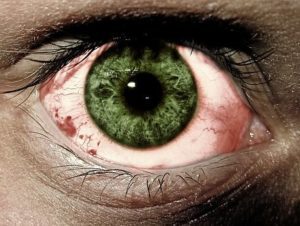Why Eye & Vision Health Is Important
Healthy eyes and excellent vision are very important for your quality of life. However, even though you might believe you are seeing your finest and your eyes do not have any obvious symptoms of disease, they might not be as healthy as they could be. Having an annual eye exam is the very best way to secure your eye health. There are also other actions you can take to avoid typical eye and vision issues.
Good eye health begins with the food on your plate. Nutrients like omega-3 fatty acids, zinc, lutein, and vitamins C and E can help fend off age-related vision issues like macular degeneration and cataracts.
Smoking cigarettes makes you likely to get damage to your optic nerve, cataracts, and macular degeneration, amongst many other medical problems. If you’ve tried to quit before just to start again, keep at it.
The ideal set of sunglasses will help in protecting your eyes from the sun’s ultraviolet (UV) rays. Too much UV exposure increases your risk of cataracts and macular degeneration.
Frequently asked questions
You can keep your eyes healthy and see your best by making healthy lifestyle changes:
- Eat a healthy, well-balanced diet.
- Preserve a healthy weight.
- Get a routine workout.
- Wear sunglasses.
- Use protective eyewear.
- Avoid smoking.
- Know your family medical history.
Best foods for eye health
- Carrots.
- Kale.
- Red peppers.
- Salmon.
- Oysters.
Vitamin A is fantastic for vision. Carrots contain beta carotene and Vitamin A, which can add to your eyes’ health and might offer a fantastic source of eye vitamins for macular degeneration and cataracts.
A few of the most common causes that harm vision consists of:
- Aging.
- Excessive computer, phone or TV screen time.
- Overuse of eye drops.
- UV sunlight.
- Excessive Use of Alcohol.
- Contact lenses.
- Smoking cigarettes.
- Dry eyes.
Self-care for your eyes includes:
- Attempt not to touch or rub your eyes.
- Use sunglasses when outdoors.
- Drink enough water to remain hydrated.
- Get sufficient sleep to rest your body and eyes.
- Take your eyes off your computer screen or TV after 15 minutes.
Once an eye has been damaged, treatment options are limited to restore vision. Many types of vision loss are permanent. Some types of vision loss can be improved naturally, by taking a proactive approach in protecting your eyes to prevent vision loss in the future.
Unfortunately, there’s no cure for glaucoma. Glaucoma can be treated with a combination of eye drops, oral medicine, or surgery to reduce pressure in the eye, thereby preventing permanent vision loss.
The Latest in Eye & Vision Health
- All
- Eye & Vision

Prediabetes A1C Test Range
The A1C test is a simple blood test to find diabetes risk. Read More

Eye Diseases
Find integrative medicine therapies that work for managing eye diseases. See real Read More




